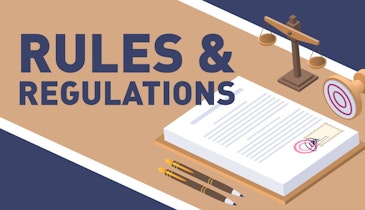We live in a stressful 24/7 society, filled with uncertainty in the job market and the economy. A large percentage of employees admit to being unhappy with and psychologically disengaged from their jobs.
Recent research shows that among the least-happy and least-engaged employees, the annual per-person cost of lost productivity due to sick days is more than $28,000, versus $840 among the happiest and most engaged employees. Furthermore, job stress alone is estimated to cost U.S. industry at least $300 billion a year in absenteeism, diminished productivity, employee turnover and direct medical, legal and insurance fees.
Matt has been a manager for 16 years. Although his employees seem satisfied with their compensation, surveys conducted with them consistently show that their job satisfaction and morale are low and their stress levels are high. Matt has been well trained, but seems at a loss to help his employees feel more engaged or happy with their jobs.
Because he feels helpless to change the job situation for his employees, Matt, himself, is stressed at work and is unhappy in his supervisor role. Can Matt regain his passion for his profession? Are there techniques he can use that will immediately enhance his employees' satisfaction and morale? Absolutely!
The following are powerful prescriptions for enhancing employee morale and job performance and minimizing job stress:
Provide goal-setting strategies.
People are 11 times more likely to reach a goal when they write it down, as opposed to simply thinking about the goal. Have regular meetings with your team, where in addition to encouraging them to discuss their areas of discontentment, join with them in writing down specific short- and long-term goals that are action-oriented.
For example, "For this month, we will have four meetings where we will design and implement our new plan for a healthy workplace. Your goal is to bring an idea with you to each meeting."
Have them write down ways in which they can sabotage themselves so that they will not accomplish those goals. Encourage them to be honest with themselves about the kinds of self-talk or self-defeating behaviors that they have engaged in before, which contribute to not accomplishing their goals.
Give employees a sense of control over their jobs.
Psychological studies show it's important to give employees a genuine say in how to conduct their jobs Not only does the perception that management truly cares about their feelings have a powerful impact on their morale and degree of job engagement, but giving workers some control over their own schedule (such as flex time) and how to approach their work tasks dramatically reduces job burnout, absenteeism and turnover.
Have frequent meetings with your employees directed at listening to their issues and allow them to suggest resolutions. Encourage workers to determine their own specific strengths and put them to use on their jobs. When this is done, employees are six times as likely to be engaged in their jobs and more than three times as likely to report excellent quality of life at their workplace.
Other examples of providing employee involvement are:
• Self-managed work teams
• Employee committees or task forces
• Continuous improvement teams
• Team-centered hiring process, where employees select their peers
• Participative decision-making projects
Develop growth and development programs.
Most employees want to gain new skills and knowledge so they don't feel stagnant in their jobs. Information provided by outside experts that helps them on their jobs and in their lives can serve these needs. Providing lunchtime seminars and workshops on such topics as stress mastery, anger mastery, enhanced wellness, communications skills, as well as cross-training them with other job skills enhances organizational effectiveness and improves work quality.
Provide recognition events.
It's a no-brainer for companies to provide top service for their customers and clients, but they often forget their most important assets – their employees. Why not make employees feel as valued as your customers? By acknowledging their efforts – not just their productivity – you increase employee satisfaction, morale and self-esteem. Examples of providing recognition:
• Give unpredictable rewards, such as movie tickets and gift certificates,
for a job well done.
• Create a committee to plan special events to show appreciation for
your employees.
• Provide free, healthy lunch options for employees (this also benefits
by having them stay in the building to discuss work-related issues
during lunch).
• Encourage friendly competition off the job, such as bowling leagues,
and post pictures and results around the work sites.
DO IT NOW
If you begin to employ these potent human resources strategies into your workplace today, you will see amazing results quickly.





